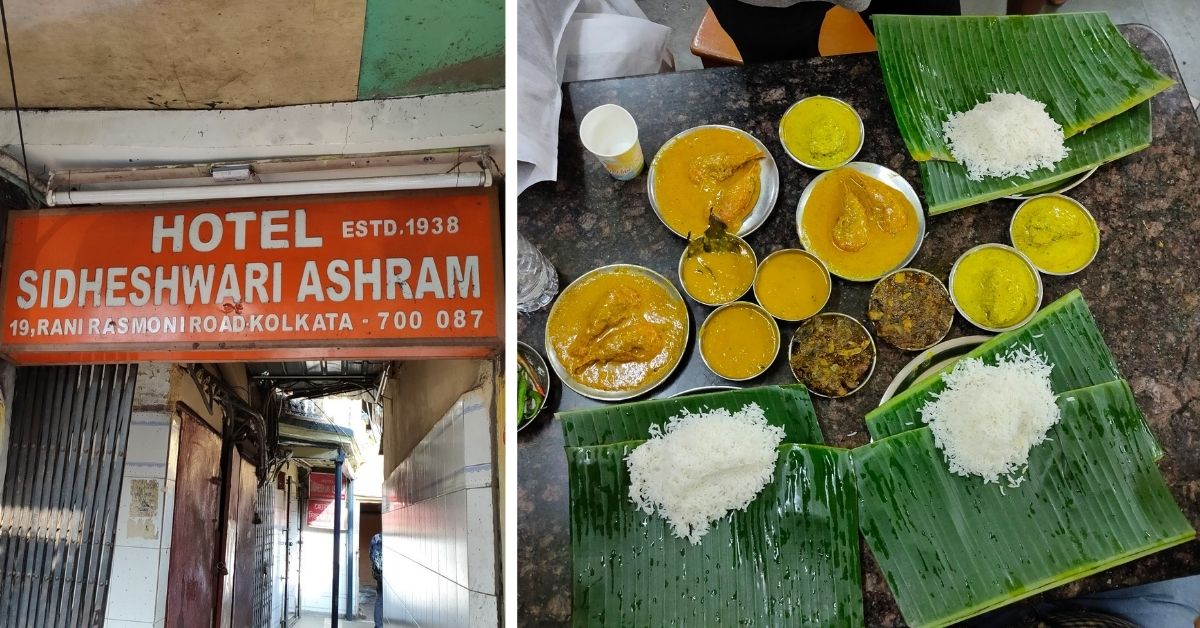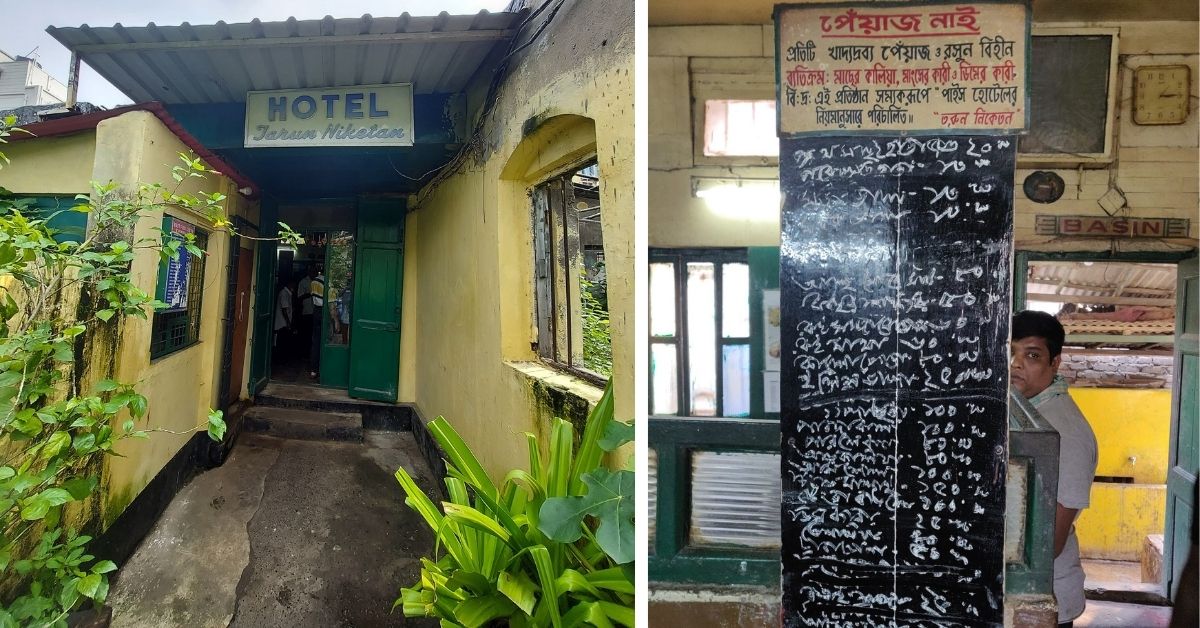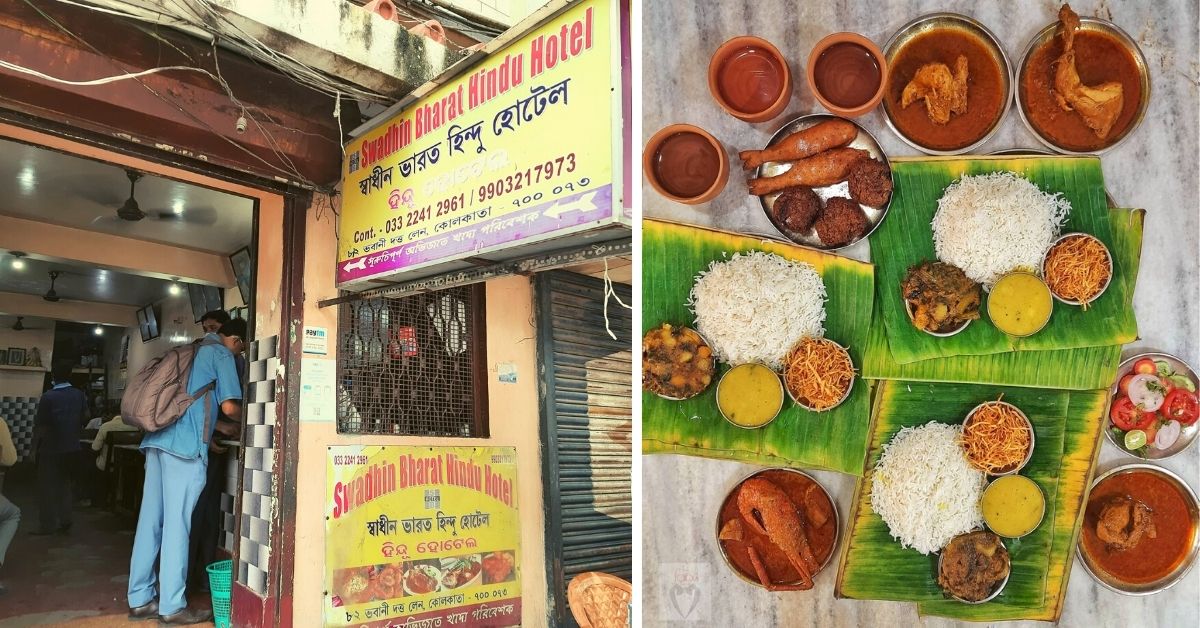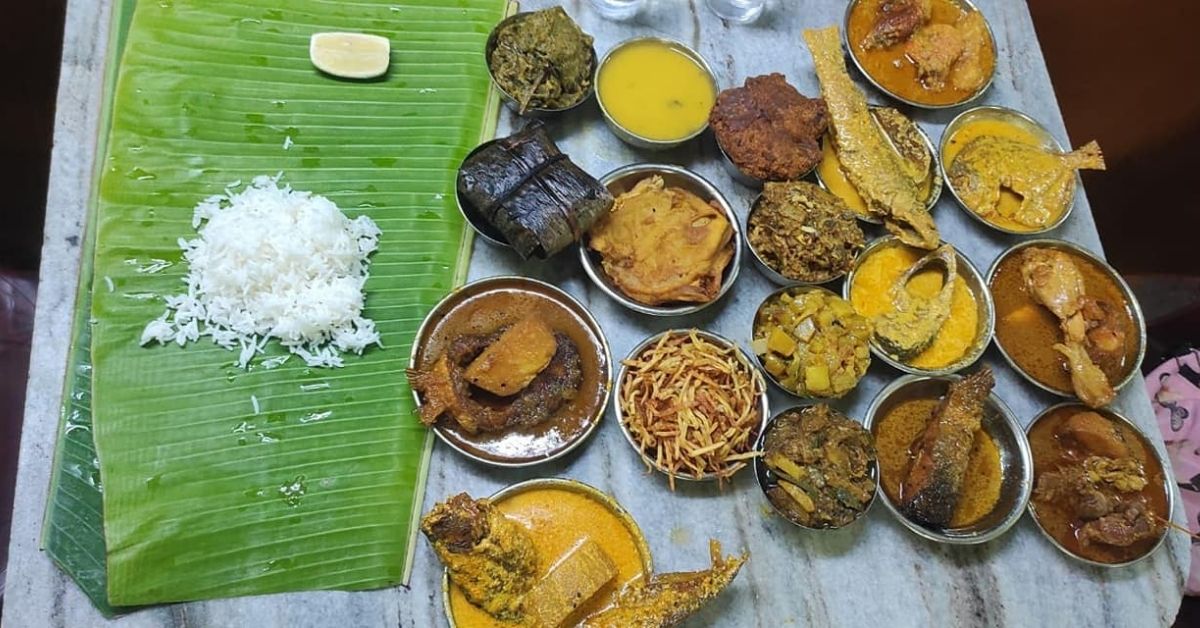There’s a saying that you can never go hungry in the city of Kolkata, even if all you possess are just a few coins. Much before West Bengal Chief Minister Mamata Banerjee launched the ‘Maa Canteen’ that serves meals worth Rs. 5, the city has been satiating the hunger of thousands of people for over decades.
The Pice hotels, situated across the city and beyond, offer cheap and comforting meals to people from all walks of life — be it IT professionals or migrant workers. A source of affordable and homely nourishment, today only a few of these establishments survive amid the barrage of fast-food centres mushrooming in every nook and corner of Kolkata.
The Right ‘Pice’
Derived straight from the word, ‘paisa’, which is considered the lowest denomination in Indian currency, the Pice hotels originated during the British Raj in the 1900s, across the then commercial capital of Calcutta. Back then, ‘Pice’ was a monetary unit of British India equivalent to one quarter of an anna.
Unpretentious in their decor, these eateries provided simple, wholesome meals for a few paisas to satiate the hunger of thousands of migrants moving to the city in search of a livelihood. A concept that operated to complement the burgeoning ‘mess’ or paying guest accommodations, a majority of these migrants would be bachelor men from lower-middle class and middle-class families, who did not know how to cook and would miss homely meals.
Pice hotels not only provided them sustenance but also a space to belong which was symbolic of a home away from home.
But beyond the goal of catering to homesick bachelors, the service at these establishments was also unique. Although the food prepared was strictly traditional with comforting items like—maach bhaja (fried fish), maacher jhol (fish curry), kumro phool bhaja (pumpkin flower fritters), alu posto (potato with poppy seeds), etc—their method of service was slightly different from the norm, and environmentally sustainable much before it became a buzzword.
For instance, Pice hotels would serve the food on banana leaves and the customers would be seated on mats on the floor, instead of plastic furniture, as seen in numerous affordable eateries across the city. There was no concept of a menu card, instead the daily changing menu would be handwritten on a blackboard, and memorised by the servers. Another unique feature of the Pice hotels was to price every single item separately. To ensure zero wastage and low overhead costs, customers would have to individually pay for everything they consumed, even the banana leaf and a small sliver of lemon.
Here are few iconic Pice hotels that you must visit on your next trip to Kolkata:
Hotel Sidheshwari Ashram:

Tucked away in an alley behind the city’s iconic Sir Stuart Hogg Market (New Market), stands Sidheshwari Ashram, which has been serving loyal patrons for the past 93 years. Established in 1928, by Khudiram Sarkar this eatery is famous for its special Kobiraji Jhol, which is basically a healthy fish curry preparation with raw banana, potato, papaya and very little oil. While fish is a constant in their menu, other items like mocha (banana blossom) and kancha amer chutney (raw mango chutney) are also popular.
Beyond the food, the interiors of Sidheshwari Ashram are also slightly more polished than other Pice hotels. The current owners of this establishment, Debjani and Rita Sen, have made a few changes to the interiors by adding wooden furniture and air conditioners in an effort to attract more international tourists.
Tarun Niketan Hotel:

One of the oldest Pice hotels in the city, Tarun Niketan Hotel was established in 1915 by Eshan Chandra Deb. Located near Lake market, inside a narrow lane, this establishment is known for its meat and fish dishes, especially hansher dim (duck egg) curry and mutton curry. Most of its food is prepared in a traditional way without any onion or garlic, baring the non-vegetarian items.
Swadhin Bharat Hindu Hotel:

Located in a student hub in College Street, near the Presidency College, this establishment was set up in 1927 by Man Gobindo Ponda. One of the things that make this Bengali eatery stand out from the rest is its impressive variety of vegetarian dishes. Showcasing a whooping 28 types of vegetarian dishes, Swadhin Bharat Hindu Hotel is the answer to every vegetarian tourist’s complaint that Kolkata has no good vegetarian food.
But, that doesn’t mean, meat and fish eating patrons are left unsatisfied here. This eatery also boasts of fish curries made with rare freshwater fishes like magur maach, koi maach, etc. One should also try the chitol macher muitha (fish balls cooked in spicy tomato onion gravy) and macher dimer bora (fish egg pakoras).
Jagannath Ashram Hotel:

Situated just beside the famed Ghosh Cabin of College Street, Jagannath Ashram Hotel also was a hub for young migrant students, academicians and workers looking for homely food. Established in 1952 by Gobordhan Palui, this eatery has changed a lot in terms of the interiors but prides itself on its untouched authentic menu. From renowned author Mahashweta Devi to veteran singer Manna Dey, this restaurant has served many prominent intellectuals back in the day, and continues to do so till date. When visiting College Street, try their watery mutton curry with rice for lunch and top it off with roshogollas from Ghosh Cabin.
Parbati Hotel:
This Pice hotel is a fish lover’s paradise with over 10 fish items to choose from every single day. Located near Jadu Babur bazaar in Bhowanipur, this eatery was established in 1960. While the original owner’s name is still unknown , it is now run by Souvik Daso who takes pride in Parbati Hotel’s exhaustive menu of fish curries and bhajas. One of the most affordable even among all Pice hotels, come to this restaurant for its simple yet delicious serving of mustard hilsa curry.
Today, against the backdrop of commercialisation, many Pice hotels are struggling to survive. In most of the places, the bamboo floor mats have been replaced with tables and chairs but the tradition of serving on banana leaves and a handwritten menu affordable for all, continues.
For them, it is not about just swimming against the current but keeping nostalgia alive through pure ingredients and authentic flavours that don’t require fancy decor or high price tags. This is because at Pice hotels you are guaranteed a full belly, but never a light pocket.
(Edited by Yoshita Rao)
No comments:
Post a Comment